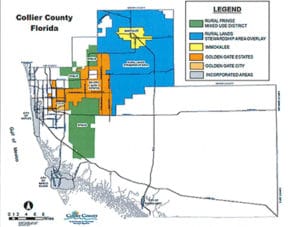Top Story
Date: January 29 – February 3, 2017
Location: Collier County, FL
Sponsor: The Board of County Commissioners of Collier County (In partnership with the City of Naples, the City of Marco Island, Everglades City, the Collier County Affordable Housing Advisory Committee, and the Community Housing Plan Stakeholders Committee)
Subject Area: Affordable Housing
Panel Chair: Philip Payne, Gingko Residential, Charlotte, NC
Background and Panel Assignment
 Located in the southwest end of the Florida peninsula, Collier County is the largest County by land area in the state. The County contains a variety of different communities including the city of Naples, inland Immokalee, Marco Island, and Fort Myers as well as four large national protected environmental areas. However, issues around affordable housing proliferate throughout the County in different communities. The Board of County Commissioners invited the ULI Advisory Services panel to help the County develop a strategic, community-side approach on addressing housing affordability issues. The panel was asked the following questions:
Located in the southwest end of the Florida peninsula, Collier County is the largest County by land area in the state. The County contains a variety of different communities including the city of Naples, inland Immokalee, Marco Island, and Fort Myers as well as four large national protected environmental areas. However, issues around affordable housing proliferate throughout the County in different communities. The Board of County Commissioners invited the ULI Advisory Services panel to help the County develop a strategic, community-side approach on addressing housing affordability issues. The panel was asked the following questions:
- Why is it important to have a balanced supply of housing based on type, tenure, and access?
- What are major obstacles for stakeholders and how to mitigate them?
- What are the stakeholders perception of affordable housing and its tools as well as policies?
- How can public policy encourage redevelopment in underutilized area?
- What national case studies can be applied to Collier County?
Summary of Recommendations
Based on the background material provided, site tours, and onsite interviews, the panel provided the following strategic recommendations for the County to address housing affordability.
- Create a vision for the future of your community. Collier County needs a unified vision of what their future goals are to be proactive with growth, instead of reactive.
- Recognize that housing affordability affects all segments of your community. From service industry workers to retiring seniors, housing affordability issues can be identified in all parts of the community.
- Increase supply of affordable rental housing.
- Adopt a SmartCode. The panel recommends greater flexibility with zoning to allow more innovative building opportunities for the community and developers.
- Reactivate your Affordable Housing Trust Fund. Fortunately, the County has started to use these tools in the past. It’s important to reactivate this now and to utilize other financial tools.
- Transportation is a vital part of the housing affordability solution. Establish transportation corridors to target mixed income, multifamily housing development. The panel recommends strategically placing denser, diverse housing not only to increase the quality of life for the community, but also to relieve stress on existing infrastructure throughout the County.
- Consider establishing an enhanced minimum wage ordinance.
- Raise public awareness and communicate with your community. There are common misconceptions and myths around housing affordability that the County needs to disspell. Through an effective, coordinated public awareness and education campaign, the County can not only increase the community’s understanding of affordable housing, but also humanize the issue by featuring the affordability struggles of everyday community members.